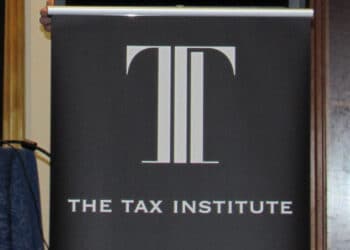Advisers and practitioners who lack knowledge and are offering trustees inappropriate advice are an “outstanding” problem in the SMSF sector, managing director at SMSF Law and Equity Protect Shane Ellis told SMSF Adviser.
“Trustees are often really doing their best but the professionals supporting them are letting them down,” he said.
“A lot of the trustees have been with their accountant for a long period of time and the accountant is often the trusted family adviser. The accountant or other professional [often] knows very little about the SMSF space but won’t take the time to get the proper support.”
In turn, Mr Ellis said he supports the Australian Securities and Investment Commission’s proposed disclosure obligations for professionals giving advice to SMSF trustees.
“If that encourages people to say ‘well, I’m not longer going to be in the waters anymore because the rules are too tight’… I think that’s a good thing,” he said.
Mr Ellis added one of the most significant legal risks for trustees when setting up and managing an SMSF is thinking the fund is entirely self-managed.
“SMSFs, they’re not self-managed if they’re properly being cared for… trustees need to be relying upon a pool of advisers who really know their stuff,” said Mr Ellis.
Mr Ellis also expressed concern about the current hype over SMSFs gearing into property, drawing attention to the relatively minor percentage of SMSFs that are investing in real estate through their funds.
“The numbers aren’t huge, and I think the hype is bigger than the numbers are. If you have a look at the risks that trustees are taking, you’ve got to have a look at statistics and facts compared with innuendo and the odd case,” he said.
Mr Ellis added it is “extraordinary” that the Reserve Bank of Australia joined the SMSF property debate, and questioned where the input goes “beyond their function”.
Shane will be presenting at the upcoming 7th annual SMSF Strategy Day and will discuss pension ruling fine print, maximising SMSF returns and paying life insurance tax effectively. To secure your early bird tickets today CLICK HERE.



It really is about the quality of advice. It doesnt matter from what profession the advisor comes, whether that be legal, accounting or financial planning, they should be guiding their clients to experts when they dont know the answer. The SMSF laws are as long and as complicated as the tax laws and they are always changing like the tax laws. If clients get things wrong in the SMSF space they could lose their tax concessions, be disqualified from having a SMSF or even get fined or jailed.
just another bunch of lawyers wanting people to believe that the SMF space is complicated so they can flog trust deeds and then sell updates every three years.In my time I have met more lawyers who havent got a clue , than i have met accountants and advisers. About 50% of parliamentarians are lawyers, so i rest my case .
Where is personal responsibility in all this? I am told investors are being scammed into property by slick “sales techniques” but then I know they have to go through all sorts of processes to set up an SMSF, borrow money, buy property etc. I cannot accept such investors are just following like lambs. They are making a decision based on lack of faith in the alternatives or simple greed. Maybe its time for regulators to put warnings out there and when challenged after the fact, simply say, “We told you so!” Enough of the intervention, please!!
Despite all the hype and the paucity of proven numbers of SMSF’s going into property it is still an area of special concern. There is NO ‘compensation’ (other than adviser’s PI if any) for those individuals who got bad advice and lost the lot.
It is not only a numbers game. it is a Risk Managers nightmare – the consequences are catastrophic (for that Trustee), the likelihood is unknown (though I suspect on the high end) and the sector is un-regulated to a large extent. In my mind a recipe for disaster.